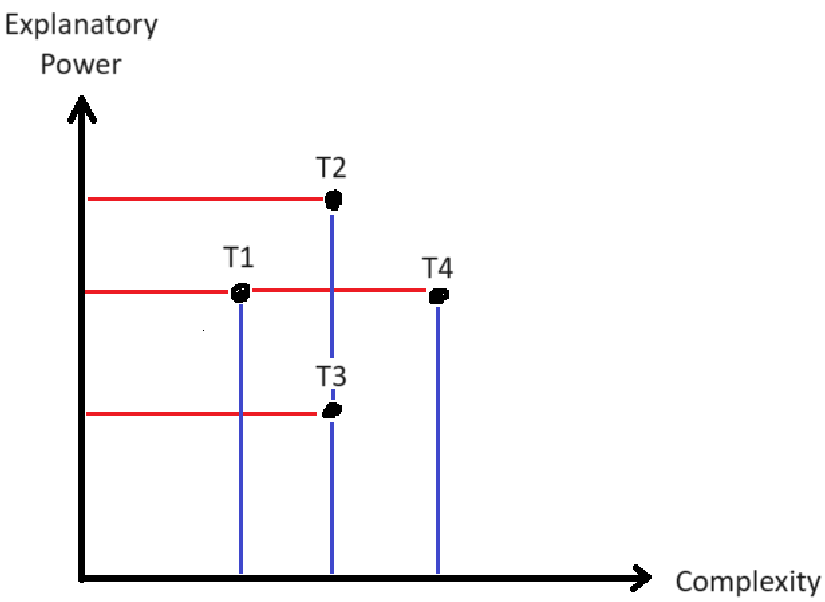I keep seeing talk here of how simplicity isn’t that important when deciding between theories but after looking at the different kinds of virtues behind theory choice, I fail to see how the rest can be any more important. Please let me know if I’m missing something here.
Here is the link at which I was looking at: https://www.oxfordbibliographies.com/abstract/document/obo-9780195396577/obo-9780195396577-0409.xml#:~:text=A%20theoretical%20virtue%20in%20science,consistency%2C%20coherence%2C%20and%20fertility
People often talk about comparing theories using explanatory power. But any theory can be adjusted to explain anything. For example, me waking up at 7 am can be explained through physical processes or an invisible goblin or god working in some hidden way (still using the same physical processes) to then cause me to wake up. So it seems that you can always get theories to have a tie on this.
What about coherence? Well coherence is about how well a theory accords with other well established beliefs. But then that just begs the question of the importance of those well established beliefs. A person seeing a life event as a sign from god coheres with his theistic beliefs. An atheistic person will not see a life event as a sign from god since it doesn’t cohere with his atheistic beliefs. Again, we are at a stand still.
Predictive power is another commonly cited virtue. A theory that makes predictions is more likely to be true than another theory that doesn’t. But again, one can still create an infinite number of mutually contradictory theories that explain the same events with the same predictions! For example, the predictions made by Newton’s laws are evidence for a world with Newton’s laws but no other forces at work. But they are also evidence for supernatural forces or beings such as god working using Newton’s laws. Or a devil causing events in the world using Newton’s laws. Or even some deeper level of reality that only looks as if it’s behaving using Newton’s laws but is really behaving using something else.
Now of course, one could argue that simplicity is just as subjective as these virtues but without it, can someone tell me how to choose between a theory that says god works with the world using Newton’s laws vs. Newton’s laws working by themselves?
If anything, this seems like the most objective criterion when compared to the rest. At the very least, when we imagine simulating this as a program, clearly simulating a god + the universe seems harder to do than the universe. And thus, the former would be more complex intuitively. I’m not sure if the same intuition holds for the rest of the virtues.
So why then is Occam’s razor seen as nothing but a very basic and subjective tool? Without it, there seems to be no way to choose between theories at all

